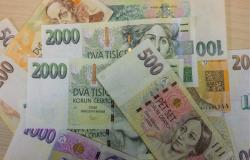Electricity and natural gas prices in the European Union decreased year-on-year in the second half of last year. However, this scenario does not apply to the Czech Republic and other EU countries. Electricity bills in the Czech Republic were 83 percent higher in local currency, the EU statistical office Eurostat said. Energy prices began to rise more noticeably even before the Russian invasion of Ukraine, after which they temporarily recorded a jump in the summer of 2022.
In the second half of last year, the average price of electricity for households in the EU fell to 28.50 euros (717.50 CZK) per 100 kilowatt hours (kWh) from 29.40 euros per 100 kWh in the first half. However, it was slightly higher compared to the second half of 2022, when it was 28.40 euros per 100 kWh.
In the second half of last year, electricity prices for households fell year-on-year in thirteen EU countries, and increased in the remaining fourteen. For non-household customers, electricity prices fell in seventeen EU countries, resulting in a 4.6 percent drop in electricity prices for the entire EU.
When prices in local currency are taken into account, the largest price increase was recorded in the Netherlands. There, the price of electricity rose by 86 percent. Next is the Czech Republic, with an increase of 83 percent, then Poland, where the growth is 35 percent, and Germany, with a price increase of 20 percent. On the contrary, electricity became cheaper in Denmark, by 39 percent. In Spain, the drop in electricity prices is 30 percent and in Sweden 20 percent.
Expressed in euros, in the second half of last year households had the cheapest electricity in Hungary, where the price was 11.30 euros per 100 kilowatt hours. It is followed by Bulgaria with a price of 11.90 euros and Malta with a price of 12.80 euros per 100 kWh. On the contrary, households in Germany had the most expensive electricity, where the price was 40.20 euros per 100 kWh, in Ireland, with a price of 37.90 euros, and in Belgium, where the price was 37.80 euros per 100 kilowatt hours.
Gas became cheaper mainly for industry
In the second half of last year, gas prices for households continued to fall in the EU, mainly due to lower energy costs and to some extent also due to taxes. These are slowly returning to pre-crisis levels after the reduction in 2022. The drop in gas prices for non-household customers was more striking in the second half of the year.
The average price of gas for households in EU countries fell to 11.30 euros (284.60 CZK) per 100 kilowatt hours in the second half of last year, while in the first half it was 11.90 euros per 100 kWh and in the second half of 2022 it was 11.40 euros for 100 kWh. Gas in the Czech Republic is among the more expensive with a price of 13.81 euros per 100 kilowatt hours. Compared to the first half of 2023, its price fell, on the contrary, it rose year-on-year.
In local currencies, gas prices in the second half of last year increased the most year-on-year in Lithuania, by 68 percent. Denmark, on the other hand, registered a decrease of 39 percent. Household gas prices fell in twelve EU countries and rose in twelve. Gas prices for industrial customers fell in all but three countries.
In the first half of last year, gas was the most expensive in the Netherlands and the cheapest in Hungary.
Tags: Electricity gas cheaper year didnt apply Czech Republic






